#tsuyama
Explore tagged Tumblr posts
Photo
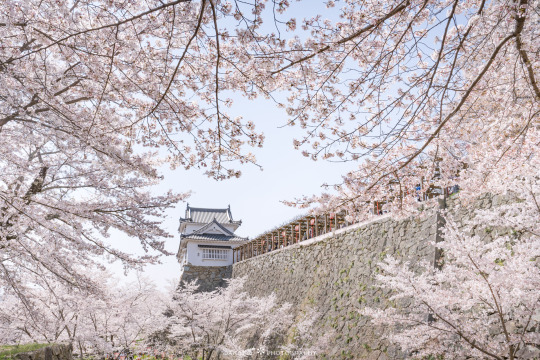

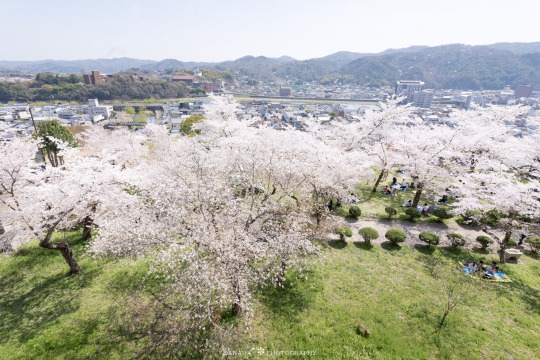

鶴山公園(津山城址址) やっぱりここが一番よ。
Kakuzan-park Tsuyama castle
365 notes
·
View notes
Photo
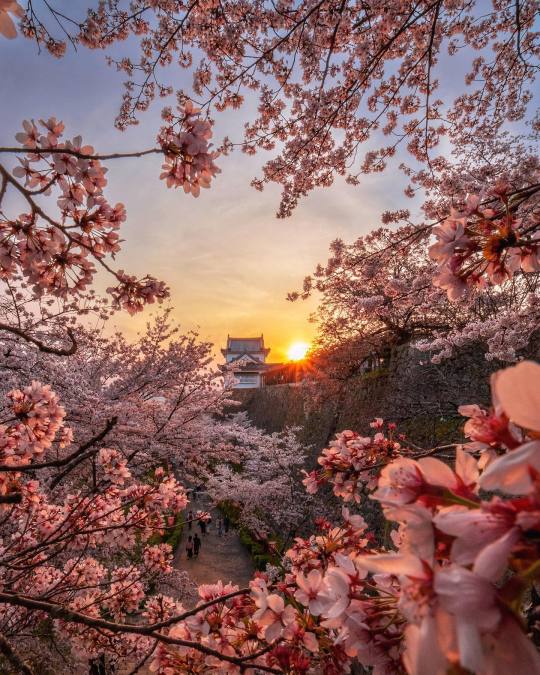
“ 津山城 “ // 𝚈𝚞𝚞𝚗𝚊
#津山城#津山城跡鶴山公園#Tsuyama Castle#Tsuyama Castle Ruins#Okayama Prefecture#Japan#spring#Sakura#cherry blossom#Sunset#explore#follow#discover
297 notes
·
View notes
Text

Merit Aikyuu God
#Merit Aikyuu God#Merit Egyptian God#Sakai Yukari#Tsuyama Fuyu#manga#shoujo#shoujo manga#romance manga#manga romance#shoujo romance#manga cap#shoujo cap#supernatural manga#manga girl
25 notes
·
View notes
Text
youtube
Yuka Umezawa +Tomoko Tsuyama, Siosai
3 notes
·
View notes
Text

Artist - 大木英夫・津山洋子 (Ohki, Hideo & Tsuyama, Yoko) Song - 雨の新宿 (Ame No Shinjuku) [Eng. "Shinjuku In The Rain"] Release Date - December 1968
Listen 🎶
My blog: Showa Music Library https://nobbykun.tumblr.com/
3 notes
·
View notes
Text





























synfilums Exhibition 2024 菊地慎 当真伊都子 作品展 津と山と ReBorn:ReBirth
フイルムで撮影していた写真を現像しました。
2024/5/25 (土) - 2024/6/2 (日) 会場: PORT ART&DESIGN TSUYAMA
ご協力・ご来場いただいた皆様、本当にありがとうございました。
0 notes
Video
Tsuyama Castle by hirorin 2013
0 notes
Text
#Pink vending machine#Tsuyama wagyu beef#Vacuum-sealed frozen packs#Morioka meat shop#Okayama Prefecture#Kita Ward#Affordable prices#Dried meat#Cattle farmers#Sixth sector industrialization#japan#innovation#customer demand
1 note
·
View note
Text
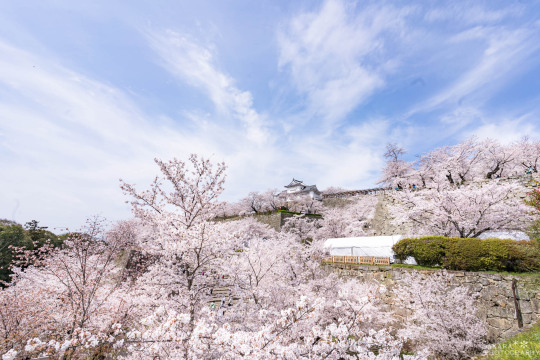
津山鶴山公園
今年は本当に素晴らしかったです。
73 notes
·
View notes
Text

Merit Aikyuu God
#Merit Aikyuu God#Merit Egyptian God#Sakai Yukari#Tsuyama Fuyu#manga#shoujo manga#romance manga#manga romance#shoujo romance#manga cap#shoujo cap#supernatural manga#shoujo#manga kiss#shoujo kiss
24 notes
·
View notes
Text










1233. Toru Murakami /// House in Tsuyama /// Tsuyama, Okayama, Japan /// 1992-94
OfHouses presents: Japanese Fields OfHouses, part XIX. (Photos: © Mitsuo Matsuoka. Source: ‘Jutakutokushu’ 08/1994.) — This project will be published in our upcoming book: ’Japanese Fields | OfHouses.’
#Fields19#Toru Murakami#japan#90s#ofhouses#oldforgottenhouses#www.ofhouses.com#thecollectionofhouses#japanesefieldsofhouses
71 notes
·
View notes
Text

Blades of betrayal
Chapter one: The new stranger
The wind howled through the mountains, carrying shards of ice and snow that cut against bare skin like invisible blades. It was a day colder than death itself. The trees stood silent, their branches heavy with snow, bowing under the weight of winter’s cruel hand. The ground was blanketed in white, a sea of frost that seemed endless. And in the midst of the storm, a lone figure moved steadily through the swirling tempest.
She wore a white-and-black kimono, its long fabric flapping wildly in the wind, like a ghost drifting through the storm. A wide black hat sat low on her head, casting her face into deep shadow. Her hair, tied back in a tight braid, was hidden beneath the hat, and a thick black scarf wrapped around her mouth and nose, concealing her features entirely. Only her eyes were visible—sharp, cold, and glinting faintly beneath the brim of her hat, like frozen steel.
But it wasn’t just her presence that unnerved those who saw her. Strapped to her back were two gleaming katanas, their hilts intricately designed, hinting at their deadly craftsmanship. A massive naginata was strapped diagonally across her back alongside them, its curved blade peeking over her shoulder, a weapon that spoke of a warrior who mastered not just the art of close combat, but death itself.
Around her waist and slung across her body hung several heavy leather pouches, their contents unknown, but they jingled faintly as she walked. Some appeared weighted with coins, others with objects no one dared imagine. The sheer volume of what she carried, combined with the aura of danger that clung to her, made her presence impossible to ignore.
Her path led her to a small village on the outskirts of Kyoto. The place was called Tsuyama, a forgotten cluster of wooden houses and shops nestled against the mountainside. The storm had driven most people indoors, and the streets were eerily quiet, the sound of her sandals crunching against the snow the only noise breaking the silence.
She reached a small building with a faded sign hanging above its door: a noodle shop, its windows fogged from the warmth within. Without hesitation, she pushed the sliding door open and stepped inside.
The warmth of the room hit her immediately, a stark contrast to the bitter cold outside. The air was thick with the aroma of simmering broth and sizzling oil, but as soon as she entered, the chatter and laughter inside the shop came to an abrupt halt. Every head turned to look at her, and an uneasy silence settled over the room.
The patrons stared.
Her appearance was unlike anything they had ever seen. The snow clinging to her kimono, the wide-brimmed hat that shadowed her face, the scarf hiding her mouth—she looked like a phantom materialized from the storm itself. But what truly captured their attention, what truly sent a shiver through the room, were the weapons strapped to her back. Two katanas, a naginata, and a myriad of pouches that jingled faintly as she moved. She was not merely a traveler. She was something else entirely.
The way she walked—steady, deliberate, without hesitation—made her seem almost otherworldly. Her presence demanded attention, even if it filled the room with unease.
She said nothing as she walked through the shop, her sandals tapping softly against the wooden floor. The other patrons whispered among themselves, their voices low and filled with suspicion.
“Who is that?”
“ Seems like a warrior…”
“No ordinary warrior carries that many blades…”
“Could he be… a ronin? A killer?”
Their whispers fell silent as she reached a table near the back of the shop and sat down. Her movements were deliberate, calm, and yet carried a weight that made the air in the room feel heavier. She placed her hands on the table, her fingers resting gently on the wooden surface, and then, with a voice like a blade drawn from its sheath, she spoke.
“Sake and noodles. Now.”
Her tone was cold, commanding, and devoid of any warmth. The words cut through the room like ice, sending a shiver down the spines of those who heard them. Her voice carried an authority that demanded obedience, a presence that made the shopkeeper hesitate before bowing nervously and hurrying to fulfill her order.
The other patrons exchanged uneasy glances, their eyes darting between one another and the strange woman who now sat among them. No one dared to speak to her, to question her, but the tension in the room was palpable.
Who was that wanderer? A fugitive? A warrior from some far-off land? And why did that person carry so many weapons?
The snowstorm raged outside, its icy winds rattling the windows of the shop, but the true storm was the one that had entered the room with her.
The room remained deathly silent as the woman—an anomaly in every sense—sat at the corner table, her icy aura filling the warm noodle shop. The shopkeeper, shaken and nervous, approached with a tray, placing a bowl of steaming noodles and a small flask of sake before her. He quickly retreated without a word, his hands trembling slightly.
Irene reached for the sake flask first, her gloved fingers steady and deliberate. She removed the stopper, tilted her head back slightly, and poured the liquid into her mouth in one slow, measured gulp. The fiery warmth of the alcohol slid down her throat, chasing away the chill that had clung to her body since entering the shop. She set the flask down with a soft clink and picked up the chopsticks.
As she began to eat, her movements precise and unhurried, the whispers from the other patrons grew louder. They were trying to be discreet, but in the quiet room, every word carried.
“Who is that?”
“He got the presence of a warrior… but no man would look like that.”
The comments grew bolder, more brazen. The men exchanged sneering looks, emboldened by the strangers silence.
And then, Irene did something no one expected.
She reached up with both hands, her chopsticks momentarily forgotten, and removed the wide-brimmed hat from her head. The room collectively froze as a cascade of dark curls tumbled free, spilling over her shoulders and down her back, like a river of ink against the white and black of her kimono. The curls were thick, unruly, and unapologetically wild, an image that stood in stark defiance of every rule of the Edo era’s rigid beauty standards.
A gasp rippled through the room as the realization hit.
“She’s a woman,” someone muttered in disbelief.
“She’s traveling alone?” another whispered. “Carrying swords? Wearing no makeup? This… this is an outrage!”
“Who is she?”
“She’s got the presence of a warrior… but no woman would be like that.”
“Is she foreign? No proper Japanese woman would wear her hair like that, wild and untamed.”
“And those weapons… it’s disgraceful! Women shouldn’t carry swords.”
The shopkeeper, peering from behind the counter, nearly dropped the dish he was cleaning. Women of this era were meant to be delicate, submissive, their appearances carefully curated to exude grace and modesty. Irene, with her unbound curls, her weapons, and her cold, sharp gaze, was the antithesis of everything society expected.
Her face, still mostly hidden by the black scarf covering her mouth, revealed only her eyes—piercing and unusual, framed by thick lashes that seemed to hold a deep, endless darkness. Her gaze scanned the room, locking onto the men who had dared to speak about her.
They froze.
Her eyes were unlike anything they had ever seen. They were cold, unrelenting, like twin voids that seemed to pierce directly into their souls. They conveyed no fear, no warmth—only an icy authority that sent a chill down their spines.
The men faltered under her gaze, but one of them, emboldened by the drink in his hand, scoffed loudly and said, “What kind of woman parades around like this? You’re a disgrace! Do you think you’re a samurai?”
Irene didn’t respond. She slowly picked up her chopsticks again, continuing to eat as though his words were no more significant than the wind howling outside. But her silence wasn’t submission—it was a quiet, simmering power that filled the room with tension.
Another man chimed in, his voice thick with contempt. “Women with swords… and that hair. She looks like a barbarian! No wonder she hides her face. Who’d want to see a savage like her? She is probably ugly too.”
Irene’s hand paused mid-movement, her chopsticks hovering just above the bowl. The room went silent again, as though everyone was holding their breath. She placed the chopsticks down gently, deliberately, and turned her head toward the group of men.
Her gaze fell on them like a blade.
They flinched, their bravado cracking under the weight of her silent fury. She didn’t speak, didn’t move, but the coldness in her eyes was more terrifying than any shouted threat. It was the look of someone who had killed before, someone who knew the weight of life and death—and treated it with indifference.
The shopkeeper, sensing the rising tension, tried to intervene. “P-please, my lords,” he stammered, bowing deeply. “Let us not cause trouble here. The storm outside is bad enough, and—”
“Silence!” one of the men snapped, but his voice trembled. He looked at Irene again, trying to muster the courage to confront her. “If you think you can just come in here and—”
Irene finally moved. Slowly, deliberately, she stood from the table, the motion fluid and precise. Her kimono shifted slightly, revealing the hilts of her two katanas and the gleaming blade of the naginata strapped to her back. The sight was enough to make the man’s voice catch in his throat.
She took one step toward the group, her gaze never leaving them. And then, in a voice colder than the storm outside, she spoke for the first time since her order.
“Say another word,” she murmured, her tone low and dangerous, “and I’ll show you what these weapons are for.”
The room fell into absolute silence. The men paled, their courage evaporating as quickly as it had come. Irene’s gaze lingered on them for a moment longer before she turned away, returning to her seat. She picked up her chopsticks again, as though nothing had happened, and resumed eating.
The men didn’t speak again.
After a few minutes of suffocating silence, the tension in the room remained thick, but the stillness was shattered when one of the men, his face flushed with alcohol and fury, finally spoke up. His voice was trembling with bravado, but there was no mistaking the venom in his words.
“You little bitch,” he sneered, his eyes narrowing as he looked at Irene. “How dare you—”
Before he could finish his sentence, the room erupted in a blur of motion. Irene, still sitting at the table, had barely moved. Her hand shot out with the speed of a striking serpent, and in one fluid motion, she drove her chopstick—like a dagger—directly into his throat.
There was a sharp, sickening crack as the wood pierced through his skin, and then the sound of gasping breath as the man staggered back, his hands clutching at his throat in a futile attempt to stop the blood. His eyes bulged in shock, and for a moment, he couldn’t comprehend what had just happened.
The room was paralyzed with fear as the man collapsed to the ground, his life draining from him as quickly as the blood that pooled beneath him. The other patrons were frozen in place, their mouths agape, too stunned to even breathe. The shopkeeper, wide-eyed, stood behind the counter, unable to move or speak, his hands shaking as he stared at the scene unfolding before him.
Irene didn’t move an inch. She simply sat there, her expression unchanged, as though nothing had happened. Her gaze remained cold, her posture unbroken. She looked at the dying man for only a moment before glancing back down at her bowl of noodles, as though his life had never been worth the effort of a second glance.
The men around him had turned pale, their faces drained of all color, the arrogance and mockery they once wore now replaced with pure terror. None of them dared to say a word.
Irene took a slow, deliberate sip from her sake flask, her eyes never leaving the table. The message had been clear, and it had been brutal.
In the silence that followed, the shop seemed to hold its breath. No one dared to move, speak, or even look in her direction again. The only sound was the soft wind howling outside, as if even nature itself was holding back from disturbing the moment.
Irene finished her drink with a quiet exhale, her eyes glinting as she glanced around at the frightened faces. Her voice, when she spoke, was cold and final.
“If you are wise,” she said, her words sharp and unforgiving, “you will keep your mouths shut. Or I will cut your heads off.”
The remaining men, their fear palpable, nodded silently, too terrified to do anything but comply. Irene didn’t spare them another glance. She finished her meal in silence, as if the brief violence was just another part of her day.
The rest of the room remained silent, but the unease was unspoken. They had all witnessed something far beyond their comprehension—something far darker and more dangerous than any of them had ever expected to face.
The woman with the wild, untamed hair, the deadly weapons, and the ice-cold gaze had made one thing very clear: she was not to be crossed.
—————————-
Shortly after Irene finished her meal, she stood up from the table with the same calculated, fluid motion. She didn’t even glance back at the men who now stared at her with a mix of fear and resentment. Her presence in the room had already left an indelible mark on them, but she showed no sign of care.
Without a word, she walked to the counter, where the shopkeeper stood frozen, still pale from the scene. Irene reached into one of her leather pouches and placed an excessive amount of coin on the counter. It was more than enough to cover her meal—far more.
The shopkeeper hesitated, glancing at the money and then back at her, unsure of what to do or say.
“Take it,” Irene said in a low, controlled voice. “Keep it. You won’t need to remember me.”
She turned and walked to the door, the soft jingle of her pouches and the rustle of her kimono the only sounds as she exited into the snowstorm.
The door slid shut behind her, and the silence in the room returned, heavier than before. The men, still shaken by the display of violence, exchanged uncertain glances.
But then, one of them—his face still flushed with fury—gritted his teeth and muttered, “That damn whore. Who does she think she is?”
His eyes narrowed as he stood up, his hand reaching for his blade, but another man quickly caught his arm.
“You’re insane if you think we can take her on. That woman… she’s dangerous. She’s like nothing I’ve ever seen. Do you want to end up like that poor fool on the floor?”
The man sneered, but his eyes flicked nervously to the spot where Irene had been moments before. “No. I’m not going to let her just walk away after that. We have to follow her. We can’t let a bitch like that live, not after what she did.”
The others murmured in agreement, their fear still palpable but overtaken by a twisted need for vengeance. They glanced toward the door, knowing that if they didn’t act quickly, she would be gone—and they wouldn’t get another chance.
The man who had spoken earlier, now seething with anger, nodded sharply. “Get your weapons. We’ll follow her and kill her. We’ll make sure no one ever dares to do this again.”
Their plans were already forming in their minds—plans filled with blind fury and the foolish conviction that they could conquer someone like Irene.
Outside, the storm continued to rage, and the faint silhouette of Irene moved steadily through the snow. Little did she know, her actions had already set in motion the chain of events that would come to haunt her. She had walked into the shop as a stranger, but now she had become the target of a vendetta—a vendetta that would soon come to claim blood.
But for now, she walked on through the blizzard, undeterred, as if she were simply a part of the storm itself.
#jjk ryomen#sukuna#jujutsu kaisen#sukuna headcanons#sukuna ryomen#gojo satoru#sukuna smut#sukuna ryomen smut#gojo smut#samurai#katana#dilf toji#toji headcanons#toji fushiguro x reader#toji smut#jjk toji#jjk gojo#ryomen sukuna#ryomen angst#jujutsu ryomen#ryomen x you#ryomen x reader#jujutsu gojo#gojo saturo#gojo sensei#jujutsu kaisen ryomen#ryomen fluff#ryomen x y/n#toji fushiguro#toji zenin
14 notes
·
View notes
Text



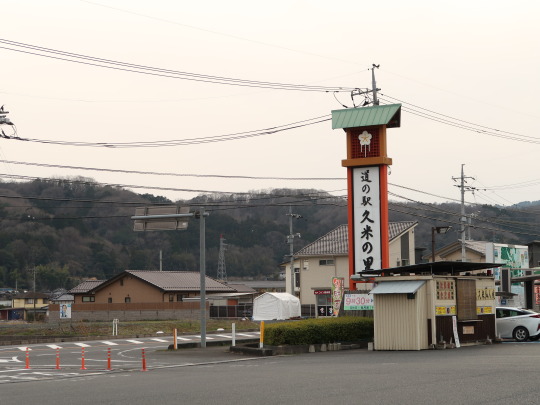

道の駅 久米の里 Michinoeki Kume-no-sato
岡山県津山市 Tsuyama-shi, Okayama, Japan
2024/03
44 notes
·
View notes
Video
Tsuyama Castle by hirorin 2013
0 notes
Text
Japanese Monkey God
User @red-lights-burning asked if there was a connection between Sun Wukong and the monkey gods of Japan. They provided lovely info, which was split between two asks, but I decided to put everything together into a single post.
@red-lights-burning asked: Japan has their own monkey protector named Masaru AKA Sannō Gongen, who was created back in the early 9th century by Tendai Buddhist sect founder Saichō shortly after he returned from China. So it makes me think if Monkey King was already a thing in the 800’s and if he was one of the inspirations for Masaru. A description from onmarkproductions (a really great site for anyone curious about Japanese Buddhism and Shintō) MASARU 神猿 Literally “Kami Monkey.” Masaru is the sacred monkey and protector of the Hie Shrine (aka Hie Jinja 日吉神社, Hiyoshi Taisha 日吉大社). The term “Masura” is often translated as “excel,” reflecting the belief that this sacred monkey can overcome all obstacles and prevail against all evil. Masaru is thus considered a demon queller par excellence (魔が去る・何よりも勝る). In the Heian era, Masaru (also translated “Great Monkey”) was invoked in Kōshin rituals to stop the three worms from escaping the body. Masaru also appears in Japanese scrolls used in Koushin rites. Here’s a couple other descriptions SANNŌ GONGEN 山王 権現 SARUGAMI 猿神 Fertility, Childbirth & Marriage Monkeys are patrons of harmonious marriage and safe childbirth at some of the 3,800 Hie Jinja shrines in Japan. These shrines are often dedicated to Sannō Gongen 山王権現 (lit. = mountain king avatar), who is a monkey. Sannō is the central deity of Japan’s Tendai Shinto-Buddhist multiplex on Mt. Hiei (Shiga Prefecture, near Kyoto). The monkey is Sannou’s Shinto messenger (tsukai 使い) and Buddhist avatar (gongen 権現). The monkey messenger is also known as Sarugami (猿神; literally “monkey kami”). Sarugami is the Shinto deity to whom the three monkeys (hear, speak, see no evil) are reportedly faithful. The monkey shrine at Nakayama Shrine 中山神社 in Tsuyama City, Okayama Prefecture, is dedicated to a red monkey named Sarugami, who blesses couples with children. According to shrine legends, the local people at one time offered human sacrifices (using females) to this deity. The shrine is mentioned in the Konjaku Monogatari-shu (今昔物語集), a collection of over 1000 tales from India, China, and Japan written during the late Heian Period (794-1192 AD). Sarugami, like Sannou Gongen, is also worshipped as the deity of easy delivery and child rearing. At such shrines, statues of the monkey deity are often decked in red bibs -- a color closely associated with fertility, children, and protection against evil forces and diseases like smallpox.
My answer:
I've read only a little bit about Japanese monkey gods. I previously referenced Sarugami in my article about the possible shamanic origins of primate-based boxing in China. Part of footnote #14 reads:
In Japan, monkeys were also associated with horses and healing via the warding of evil. Apart from monkeys being kept in stables like their Chinese counterparts, their fur was applied to the harnesses and quivers of Samurai because the warriors believed it gave them more control over their mounts. Furthermore, monkey body parts have been consumed for centuries as curative medicines, and their hides have even been stuffed to make protective amulets (kukurizaru) to ward off illness. Likewise, a genre of painting depicts divine monkeys (saru gami), messengers of the mountain deity, performing Da Nuo-like dances to ensure a good rice harvest (Ohnuki-Tierney, 1987, pp. 43-50)
The aforementioned article suggests a connection between monkeys and the Shang-Zhou Da Nuo (大儺 / 難; Jp: Tsuina, 追儺) ritual, an ancient, war-like, shamanic animal dance designed to drive away demonic illness and influences. The pertinent section reads:
It’s possible that the “twelve animals” of the Da Nuo exorcism refer to some precursor of the Chinese zodiacal animals (rat, ox, tiger, rabbit, dragon, snake, horse, goat, monkey, rooster, dog, and pig). If true, monkey fur could have been among the animal products worn by the ritual army. After all, monkeys have long been associated with curing illness and expelling evil in East Asia. [14] A modern example of exorcists who don monkey fur are the shamans of the Qiang ethnic group of Sichuan. The Qiang worship monkeys as the source and savior of their sacred knowledge, as well as the progenitor of their people, the latter being a myth cycle common among ethnic groups of Tibet and southwestern China.
This is the only relevant info that comes to mind. But based on what I know, I would guess that Sun Wukong and the monkey gods of Japan draw upon the same cultural sources. I hope this helps.
Source:
Ohnuki-Tierney, E. (1987). The Monkey as Mirror: Symbolic Transformations in Japanese History and Ritual. Princeton: Princeton University Press.
#asks#Sun Wukong#Monkey King#Journey to the West#JTTW#Japanese Buddhism#Shinto#Buddhism#monkey god#shamanism#Lego Monkie Kid#LMK
77 notes
·
View notes
Text
桜と櫓
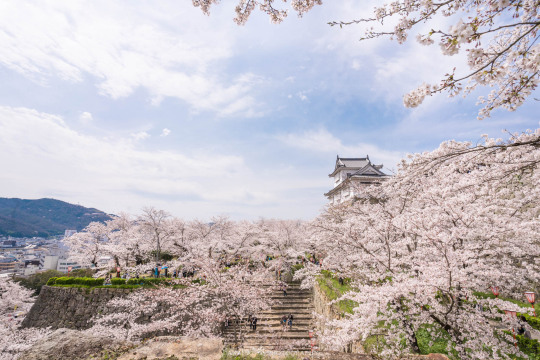
18 notes
·
View notes
